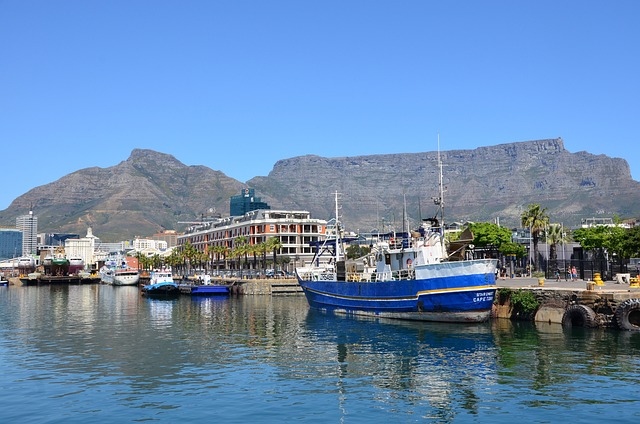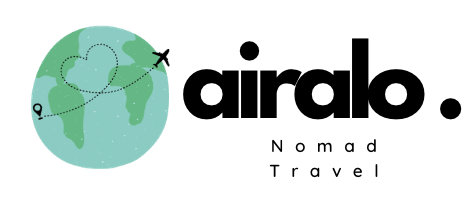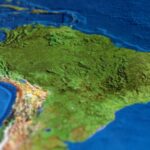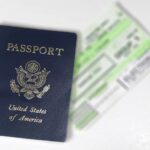
In recent years, South Africa has become one of the emerging destinations for digital nomads around the world, attracting more and more remote workers with its magnificent natural landscape, unique culture, moderate cost of living and convenient network infrastructure. To better support this trend, the South African government is actively exploring and launching visa policies suitable for digital nomads. This article will introduce in detail the relevant information of South Africa’s digital nomad visa, including application conditions, procedures, precautions, and how to effectively carry out digital nomad life in South Africa.
1. Overview of South Africa’s Digital Nomad Visa
The South African Digital Nomad Visa is a visa type designed specifically for remote workers that allows foreigners to legally stay in South Africa and work remotely without establishing an employment relationship with a local employer in South Africa. The visa was launched to attract digital nomads from around the world to South Africa, not only to help boost the local economy, but also to promote tourism revitalization and international cultural exchange.
Main features and policy purposes
- flexibility:
- One of the design priorities of this visa is to provide flexibility, ensuring that digital nomads can legally work remotely in South Africa without having to switch to another type of work visa.
- Remote workers do not need to provide a work contract to a local South African employer, avoiding the cumbersome steps and work contract requirements of traditional visa applications. This policy is particularly suitable for remote workers who often move between different countries, allowing them to stay in South Africa and focus on work without having to worry about complex visa changes.
- Stay time:
- The period of stay for a digital nomad visa is6 months to 1 year, the specific length of stay can be flexibly adjusted according to the applicant’s job type, income level and economic ties with South Africa.
- For higher-income remote workers or applicants who need to work in South Africa for a long time, they can apply for a longer visa period.
- In some cases, visa duration can be tailored to individual needs and work statuslengthen or shorten, which can best meet the different needs of digital nomads.
- Low threshold application:
- Compared with traditional work visas, the application threshold for digital nomad visas is lower and many procedures are simplified.
- Applicants do not need to provide a work contract with a local South African employer, nor do they need cumbersome qualification certification, which reduces the difficulty of entry.
- The application process is relatively simple. Remote workers only need to provide proof that they have sufficient funds to support their life and work in South Africa. They usually require monthly income to meet a certain standard or provide proof of bank deposits.
- It is particularly attractive to practitioners in the technical industry, freelancers and entrepreneurs with global work experience, who can easily meet the application requirements and obtain a visa quickly.
Policy objectives and long-term impact
- Attract international talent: By implementing this policy, South Africa aims to attract highly skilled remote workers from around the world, enhance the country’s international profile, and drive local innovation and technology development.
- Promote economic growth: Digital nomads not only consume money in South Africa, but may also bring more investment and business opportunities to the local area, especially in cross-border cooperation in the tourism and technology industries.
- Promote cultural exchanges: The implementation of the visa will help enhance cultural exchanges between South Africa and other parts of the world, and bring more international perspectives and diversified talents to South Africa.
2. Application conditions and requirements
The conditions for applying for a South African digital nomad visa are relatively clear, covering many aspects such as proof of income, proof of employment or business, health and insurance requirements, no criminal record, valid passport and proof of accommodation. Each requirement is designed to ensure that the applicant has adequate financial support, legal status and security for South African society. The following are the specific application conditions and requirements:
- Proof of income:
- Minimum income requirements:
Applicants need to provide proof of stable remote work income, and their monthly income must reach2000 USD or equivalent currency, to prove that they have sufficient financial ability to live independently in South Africa. This income criterion is designed to ensure that digital nomads do not rely on local public resources while in South Africa. - Proof of source of income:
Applicants must passBank statements, salary certificates, long-term contracts or other legal documentsProve the authenticity of their income. These documents should clearly show the source of income, the amount, and the periodicity of payments. For freelancers, income records on the platform account or independently undertaken project contracts can also be used as valid proof. - Other financial proof:
If the applicant’s source of income does not come entirely from remote work, he or she must also provide additional sources of funds that prove that he or she is self-sufficient, such as bank deposit certificates or other property certificates, to ensure that living expenses can be guaranteed while in South Africa.
- Minimum income requirements:
- Proof of employment or business:
- Remote work contract:
If the applicant is employed by a foreign company, provideRemote work contracts with foreign companies, clearly stating the applicant’s position, work content, salary, contract period and other information. - Freelancer certification:
Freelancers need to submitService agreement or platform account income record, to prove the legality and income of working remotely. Freelancers should have a clear and stable source of income that can sustain them in South Africa for a long time. - Entrepreneur proves:
For applicants who are involved in entrepreneurship among digital nomads, they are required to provideCompany registration documents, including the company’s establishment certificate, tax registration and description of the company’s operations. At the same time, entrepreneurs need to submit recent income reports to prove that their company is operating in good condition and can continue to support their stay in South Africa.
- Remote work contract:
- Health and Insurance Requirements:
- Health insurance:
All applicants must purchase health insurance covering South Africa to ensure timely access to necessary medical services in the event of sudden illness or accident. The insurance needs to cover basic medical care, emergency care, hospitalization, etc., and must meet the minimum protection requirements of the South African government. - Physical examination report:
In addition to purchasing insurance, applicants are also required to provide a recent physical examination report to ensure that their physical condition is suitable for long-term residence and work. The physical examination report must be issued by an accredited medical institution and prove that there are no infectious diseases or serious health problems.
- Health insurance:
- No criminal record:
- No criminal certificate:
Applicants need to provide information about their country of origin or place of long-term residenceNo criminal record certificate. This certificate is to ensure that the applicant will not pose a threat to local public safety and social order while in South Africa. The certificate of no criminal record needs to be certified by the relevant judicial authorities to ensure its legality and validity. - Additional background checks:
Applicants from certain countries may need to provide additional background check documents, especially those from areas with higher crime rates, and the South African government will be more cautious about such applicants.
- No criminal certificate:
- Valid passport and proof of accommodation:
- Passport validity period:
Applicants must hold a valid passport, and the passport must be valid for at least6 months, to ensure that you have enough time to stay and work in South Africa. - Proof of accommodation:
Applicants are also required to provide valid proof of residence in South Africa. Proof of residence can belease contract, indicating the lease term, landlord information and address, orHotel booking history, ensuring that the applicant has a legal residence while in South Africa. In addition, if the applicant has determined a long-term residence, a residence invitation letter issued by a relative, friend or partner can also be provided.
- Passport validity period:
3. Application process
The process of applying for a South African digital nomad visa is relatively simple, but you need to follow the prescribed steps one by one. The following is the detailed application process:
- Preparation materials:
Applicants first need to prepare a series of necessary documents according to the visa requirements. Specific materials include but are not limited to:- passport: The applicant’s passport needs to be valid for at least 6 months and have at least one blank visa page.
- Proof of income: Applicants need to provide proof of stable remote work income, which usually requires a monthly income of US$2,000 or its equivalent. Proof can be provided in the form of bank statements, income tax returns or remote working contracts.
- Health insurance: Valid health insurance must be purchased to ensure coverage for sudden illness or accidental injury during your stay in South Africa. Insurance should comply with the basic requirements of the South African Government.
- Proof of no criminal record: Provide a certificate of no criminal record from the applicant’s country of origin or long-term residence to ensure that the applicant does not pose a security risk while in South Africa.
- Physical examination report: Provide a recent physical examination report upon request, proving that there are no infectious diseases.
- Proof of accommodation: Provide proof of accommodation arrangements in South Africa, such as a rental contract or hotel booking record.
- Submit application:
Once all materials are ready, applicants can choose to submit their application through the following channels:- South African embassies and consulates abroad: Applicants can submit their visa application at the local South African embassy or consulate. The embassy or consulate will provide a detailed application form and related instructions. Applicants need to fill it out completely and prepare all materials.
- South African Immigration Service official website: Applicants can also submit an online application through the official website of the South African Immigration Service. Applying online is usually more convenient, and applicants need to upload all required materials and fill out the relevant application forms.
- Visa fee: Applicants are required to pay a visa fee when submitting their application, which costs approximately$50 to $100, the specific amount will be adjusted according to the officially announced standards. The payment method can be bank transfer, credit card or other officially designated payment channels.
- Awaiting review:
After submitting the application, the applicant needs to wait for review by the South African Immigration Service or the embassy or consulate. During the review process, applicants may receive the following situations:- Review time: Generally, visa approval takes 2 to 4 weeks, but the specific time may vary depending on the number of applicants, completeness of materials and other factors. Applicants should wait patiently and check the application progress regularly.
- Supplementary materials or interviews: During the review process, the Immigration Bureau or the embassy or consulate may require the applicant to provide additional materials or conduct an interview. Common supplements include proof of finances, details of sources of income, or detailed terms of health insurance. If an interview is required, applicants are required to arrange it in advance and ensure that they attend on time.
- Get a visa:
Once the application is approved, the applicant will receive notification from the South African Immigration Service or the embassy or consulate. Applicants can choose the following two ways to obtain a visa:- Visa sticker: If the applicant chooses to apply through the embassy or consulate, the visa will be affixed to the passport in the form of a visa sticker. Applicants can go to the embassy or consulate to collect their passports and confirm their visas.
- Electronic visa: For those who apply through the official website of the Immigration Bureau, some applicants may receive an electronic visa. Electronic visas are sent by mail, and applicants can print them directly and carry them with them.
4. Advice on living as a digital nomad in South Africa
- Choose your city of residence:
South Africa’s major cities offer different living and working experiences, suitable for digital nomads with different needs. Here are recommendations from several major cities:- Cape Town:
Cape Town is one of the most popular cities in South Africa, attracting a large number of digital nomads due to its beautiful natural landscape, pleasant climate and rich cultural atmosphere. With its vast beaches, magnificent Table Mountain and bustling business districts, the city is suitable for those who like to be in close contact with nature while enjoying the convenience of modern cities. Cape Town has a wide spread of workspace, offering many modern offices that are easily accessible and suitable for flexible working styles.- Recommended areas: Sea Point, Green Point, City Bowl。
Cape Town tourism official website
- Recommended areas: Sea Point, Green Point, City Bowl。
- Johannesburg:
As the commercial and financial center of South Africa, Johannesburg attracts a large number of international companies and rapidly growing businesses. The internet connectivity here is excellent, making it suitable for digital nomads who need efficient internet and international flight connections. Although life in Johannesburg is fast-paced, it is also a city rich in business opportunities. Johannesburg is ideal for those looking for a lively business atmosphere and good professional networks.- Recommended areas: Sandton, Rosebank, Maboneng。
Johannesburg tourism official website
- Recommended areas: Sandton, Rosebank, Maboneng。
- Durban:
Durban is the third largest city in South Africa and is known for its warm climate and beautiful beaches, making it suitable for digital nomads who enjoy outdoor activities and a low cost of living. Compared to Cape Town and Johannesburg, Durban has a lower cost of living and offers a more relaxed lifestyle, suitable for those who want to spend their time at the beach after work. Durban also has many outdoor activities, such as surfing, diving, etc., making it a paradise for sports lovers.- Recommended areas: Umhlanga, Durban North, Glenwood。
Durban tourism official website
- Recommended areas: Umhlanga, Durban North, Glenwood。
- Cape Town:
- Find the right workspace:
Several cities in South Africa offer modern coworking spaces suitable for remote working. Here are some recommended workspaces:- Workshop17 (Cape Town):
Workshop17 is a very popular workspace in Cape Town, offering flexible office rentals and equipped with efficient network facilities. This place is suitable for digital nomads who need quiet time to focus on work, while providing a good community atmosphere and a variety of business support services. Its location is convenient, close to the beach and has a pleasant environment.
Workshop17 official website - Spaces (Johannesburg):
Spaces is an internationally renowned coworking brand that provides creative and modern workspaces suitable for small teams and individuals. This workspace is uniquely designed for digital nomads in the creative and technology industries. It is located in Johannesburg’s business district, and its network facilities and office equipment are very advanced, making it convenient and efficient to work.
Spaces official website - The Foundry (Durban):
The Foundry provides a comfortable environment perfect for freelancers. Located in the heart of Durban, it offers high-quality desks, high-speed internet, and ample space to accommodate work needs of all sizes. It’s ideal whether you’re working together or interacting with other remote workers.
The Foundry official website
- Workshop17 (Cape Town):
- be safe:
Although South Africa has rich natural landscapes and diverse cultures, security problems are serious in some areas. Therefore, digital nomads need to pay special attention to personal safety to ensure that they can live and work in a safe environment. Here are some safety tips:- Choose a residential area with good security:
In Cape Town,Sea PointandGreen PointIt is a relatively safe area and is close to the city center and business district. johannesburgSandtonIt is the core area of the business district, not only has high security, but also has a convenient transportation network. Durban’sA reedIt is also a very safe area to live in, with a peaceful setting and close proximity to the beach. - Avoid going out alone at night:
Try to avoid going out alone at night, especially in more remote areas. When choosing to travel at night, it’s best to use a taxi or public transportation, and make sure to choose a reliable mode of transportation. - Use reliable transportation:
In cities it is recommended to use something likeUberorBoltSuch reliable shared taxi services usually provide safety guarantees and can provide real-time monitoring to increase travel safety.
Uber official website
- Choose a residential area with good security:
- Network and equipment protection:
South Africa’s major cities have good internet infrastructure, making it easy for digital nomads to find a suitable environment for remote working. However, in order to ensure the stability and efficiency of work, the following are recommendations for network and equipment protection:- Optical fiber network:
High-speed fiber optic internet is available in most high-end apartments and modern office spaces in South Africa. Network connections in major cities such as Cape Town, Johannesburg and Durban are very reliable, and remote workers can enjoy stable Internet services for high-bandwidth-demand work tasks such as video conferencing and file uploads. - Mobile network:
Recommended if you need to stay connected while out and aboutVodacomorMTNSIM cards, these two mobile operators have wide coverage in South Africa and provide high-quality 4G networks. By purchasing a prepaid SIM card, you can flexibly manage costs and get high-speed mobile network.
Vodacom official website
MTN official website
- Optical fiber network:
5. Future Prospects and Policy Updates
As the global trend of remote working grows, South Africa’s digital nomad visa policy continues to evolve and improve, aiming to attract more international remote workers to live and work in South Africa. Here are details on the future prospects and policy updates for South Africa’s digital nomad visa:
- Lower the application threshold and simplify the process
The South African government is considering further lowering the application threshold for digital nomad visas. While there are currently certain income requirements and health insurance requirements to apply, the government is working with relevant departments to evaluate whether these standards can be relaxed, especially for small remote workers who earn lower incomes but can prove their job stability or Freelance. Future policies may make it easier for more individuals to apply for and enjoy this visa benefit. - Extend visa validity
Currently, the South African digital nomad visa is valid for 6 months to 1 year, and applicants can choose to renew it after expiration. However, as the South African government pays more attention to the digital nomad group, policies may be introduced in the future to allow longer visa stays, such as extending to 2 years or more. This will enable remote workers to live and work stably in South Africa without having to frequently renew their visas, and enjoy greater convenience and flexibility. - Infrastructure investment and improvements
As the number of digital nomads continues to grow, the South African government plans to increase investment in infrastructure to provide a better living and working environment. This includes:- Popularization of high-speed Internet: The government is promoting the coverage and speed of internet connections, especially in remote areas and small cities, to ensure that digital nomads can enjoy reliable network services no matter where they are.
- Workspace development: Coworking spaces are also expanding and upgrading rapidly in major cities in South Africa, with more and more workspaces providing facilities that meet international standards, such as high-speed internet, comfortable working environments, meeting rooms, and areas for social interaction.
- Urban Development and Public Transport: The South African government is also promoting urban development projects, especially improving transportation infrastructure in major cities such as Cape Town and Johannesburg. These initiatives will further enhance daily mobility convenience for digital nomads and improve their quality of life in the city.
- Encouraging a diverse remote work industry
South Africa’s digital nomad visa policy is also gradually expanding to more industries, not just technology. As remote work diversifies around the world, the South African government may introduce more visa benefits that will benefit various types of freelancers, creative workers, and those working in the education field. Especially in areas such as creative industries, design, content creation, and online education, South Africa is working hard to build a more diversified attraction and provide more support and opportunities for remote workers in these industries. - Improve quality of life and international reputation
As remote working continues to grow in popularity around the world, South Africa is stepping up to showcase its appeal to the international community as an ideal destination for digital nomads. In addition to natural landscapes and cultural resources, South Africa’s livable environment, relatively low cost of living, and rich community activities also make it a favorite place for many digital nomads. In the future, the South African government also plans to further enhance South Africa’s reputation as a destination for digital nomads and attract more international talent and investment through international marketing and partnerships.
in conclusion
South Africa’s Digital Nomad Visa offers remote workers an ideal opportunity to work and live legally in this beautiful and vibrant country. As the South African government introduces more flexible and easy-to-apply visa policies, more and more digital nomads are choosing South Africa as their work base. With its unique natural landscape, rich culture and moderate cost of living, South Africa not only provides a pleasant working environment, but also promotes economic development, promotes cultural exchange and provides opportunities for innovation and cooperation for international talents. Whether looking for a productive workspace or finding a balance between city and nature, South Africa offers diverse options and support for digital nomads. By following a simple application process and meeting the necessary requirements, digital nomads can easily start their journey to work and live in South Africa.





